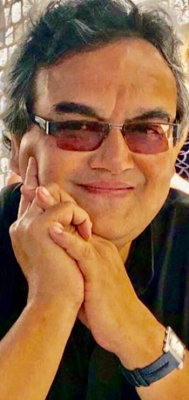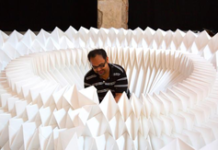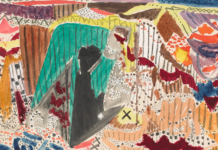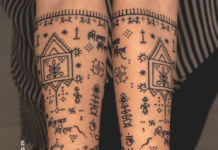By Sukant Deepak
New Delhi– In the early part of the pandemic, he took to capturing the skies from exactly the same vantage point on his terrace day after day — the selection of photographs in this book reflects the varied vivacity of the ever-changing canvas.
In poet Sudeep Sen’s latest ‘Anthropocene’:Climate Change, Contagion, Consolation’ poetry, micro-fiction, non-fiction and photography about what was happening around him during the pandemic and on the larger issue of climate change finds a place — but the form of the book grew organically. He says that there was no pre-decision on making it a multi-genre book. “Over the one and half years of lockdown, the structure naturally evolved in that way. Of course, I was writing about what was happening around me during the pandemic and on the larger issue of climate change.”
Adding that during the early days of the Covid-19 lockdown, fast evolving things were deeply affecting the society — the play of politics, the way people thought and reacted, the changing culture of ‘working from home’ for the privileged and lack of work for the dispossessed, the gruesome images of migrants walking hundreds of kilometres in the unforgiving weather riddled by hunger and pain, the quarantine, Sen says, “How can all these not affect you? To make matters worse, the pandemic was accompanied by floods, cyclones, locust attack, earthquakes, and more. The entire experience has been visceral, powerful and moving.”
Talking about the experience of writing on climate change, the pandemic, lockdown, Covid, and the migrant crisis, the poet, who has been writing on climate related phenomena for a long time says that his poems frequently dwell on the theme of excess. “Having lived in Delhi for most of my life and braved its predominantly hot weather for decades, I have often written on aspects of ‘heat’. Heat annoys, repels, inspires and exasperates. In the early 2000s, I lived in Bangladesh for some years. As a result of living for half a decade in the region of the ‘two Bengals’ — West Bengal in India and Bangladesh — I published a book titled, ‘Rain'”.
Even as one witnesses the emergence of art revolving around the pandemic, the poet says that he has noticed that with the passing of time, the celebration of nature in his poetry and prose has been tampered with warnings of what this irreversible change in climate means for the earth.
“In ‘Anthropocene’, the reader will experience the wider (and my personal) struggle with pollution and comorbidities; the sharp rise and fall in atmospheric pressures, unusual heat spikes; unseasonal rain and hailstorm; invading oceans swallowing up coastlines around the world; floods; cyclones, devastation; illnesses — physical and psychological.
While over the past three decades he may have spent most of his working hours voluntarily self-isolated and quarantined, in the early days of the pandemic, with the country under a ‘lockdown’ and no transportation allowed on the streets, he observed Delhi showing signs of regeneration. “It was extraordinary how quickly we saw signs of nature healing itself — clean air, blue skies during the day, starlit skies at night, the skyscapes during dawn and dusk everyday utterly spectacular, and the constant elation of silence. In this period, I would spend two to three hours in the evening on my terrace — reading, walking, watching and calling out to neighbours. Having said all that, due to the restricted nature of our new patterns of life, of course I would sometimes feel a sense of claustrophobia and loneliness — one is human after all.”
Mention that the latest book is perhaps his most political work and he asserts that while some of the pieces may appear more political than his earlier work, he tries as much as possible to couch the overt politics within the texture and subtlety of a literary trope. “That is where the challenge is — make the obvious, newsy and political into art that is universal and time-sustaining beyond the present. Poetry is a fine-tuned art — private and public, immediate and transcendental.”
Stressing that in traumatic times like these, certain kinds of poetry (and music) can have a quiet, reflective, healing quality about them, he feels that we have always resorted to poetry in the most meaningful times in our lives — birth/death, love/grief, crucial rituals and more. “Poetry is also something that can be read in small doses, even remembered and learned by heart. In the end, it is the most precious of all the genres.”
Currently busy with an on-going book on classical dance (and music) titled ‘The Whispering Anklet’, for which he has collaborated with dancer Aditi Mangaldas and photographer Dinesh Khanna, Sen says, “The book is shaping up wonderfully well thus far, and hopefully it will come out next year.” (IANS)














